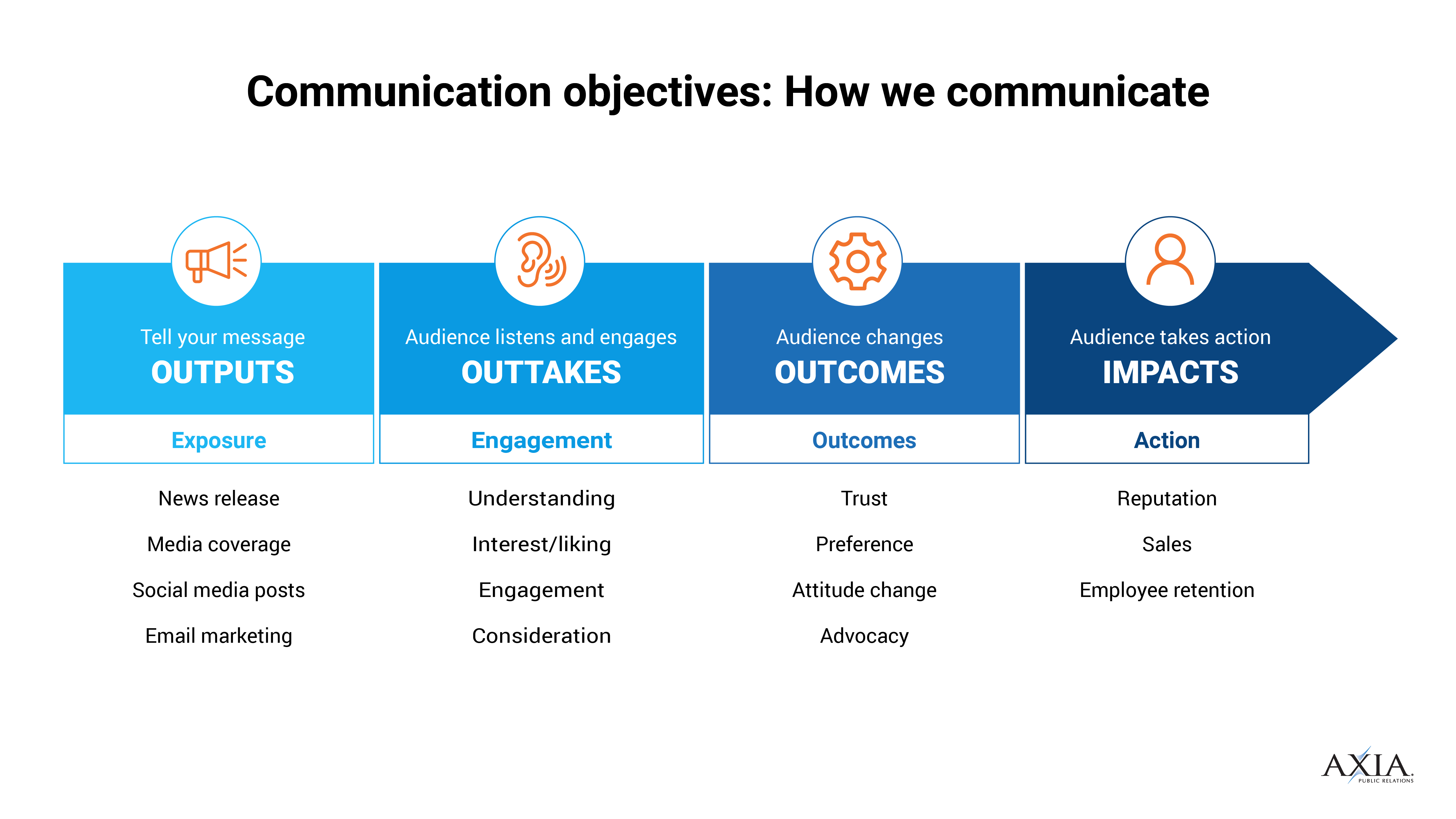 4 ways to measure the success of your public relations messages
4 ways to measure the success of your public relations messages
Public relations professionals craft messages for audiences, which we call outputs. Outputs are what a company releases and communicates to its target audiences. News releases, social media posts, email blasts, blog posts, and events are among the many ways PR professionals create outputs that appeal to target audiences.
Axia Public Relations defines the elements that help measure the success of a PR campaign through outputs, outtakes, outcomes, and impacts. While the PR industry measures success through multiple elements, executive management tends to focus on the success of PR through one: impacts. In order to affect the bottom line and sales, your PR efforts must affect the way your audiences understand your brand.
Outcomes are the effects that outputs (or messages) have on an audience. It’s the way you measure what your audiences did after they heard your message. Here are four ways creating great outputs can produce measurable outcomes from your audiences.
1. Awareness
If your company’s objective is to raise awareness about a new product – or your brand overall – outputs through social media help measure a change in audience awareness. Determining how many people interacted with and shared your post on social media helps you see if your message resonated with the audience. Outcomes from social media outputs help attribute increased followers, interaction, and engagement with those efforts.
2. Knowledge
Increasing an audience’s knowledge about your company or brand through outputs, such as email blasts and webinars, is a great way to determine what your target audience knows and doesn’t know about your brand. Distributing surveys and creating focus groups helps measure brand knowledge. These outputs can make for measurable outcomes on your audience.
3. Attitude
After an audience becomes aware of your company and its purpose, you can measure a change in your audience’s attitude toward your brand. Using primary research methods of surveys and focus groups helps determine how an audience feels toward a company. Make sure you’re establishing a baseline number and measuring the same method at a later date to observe the change of audience’s attitudes.
4. Behavior
Measuring a change in your audience’s behavior is an important part of determining the success of your outputs. After an individual decides to take action with your company, you can determine that your efforts led to this outcome. For example, if, after increasing product awareness, there is an increase in sales, you can conclude public relations outputs reached the audience, the audience had an outcome, and the output ultimately changed audience behavior.
Understanding how outputs resonate and affect target audiences plays a significant role in PR. While outputs are what PR professionals create to communicate with audiences, outcomes help us measure the success of a public relations campaign.

View Axia Public Relations’ PR measurement webinar to learn more about our measurement practices. Contact us to find out how we can produce outputs that provide measurable audience outcomes for your brand.
.jpg?width=200&name=DSC_8111%20(1).jpg) Beverly Driskill is a 2018 University of North Florida graduate who earned her Bachelor of Science in public relations.
Beverly Driskill is a 2018 University of North Florida graduate who earned her Bachelor of Science in public relations.
Featured photo by Helloquence on Unsplash
Topics: measurement, earned media


Comment on This Article